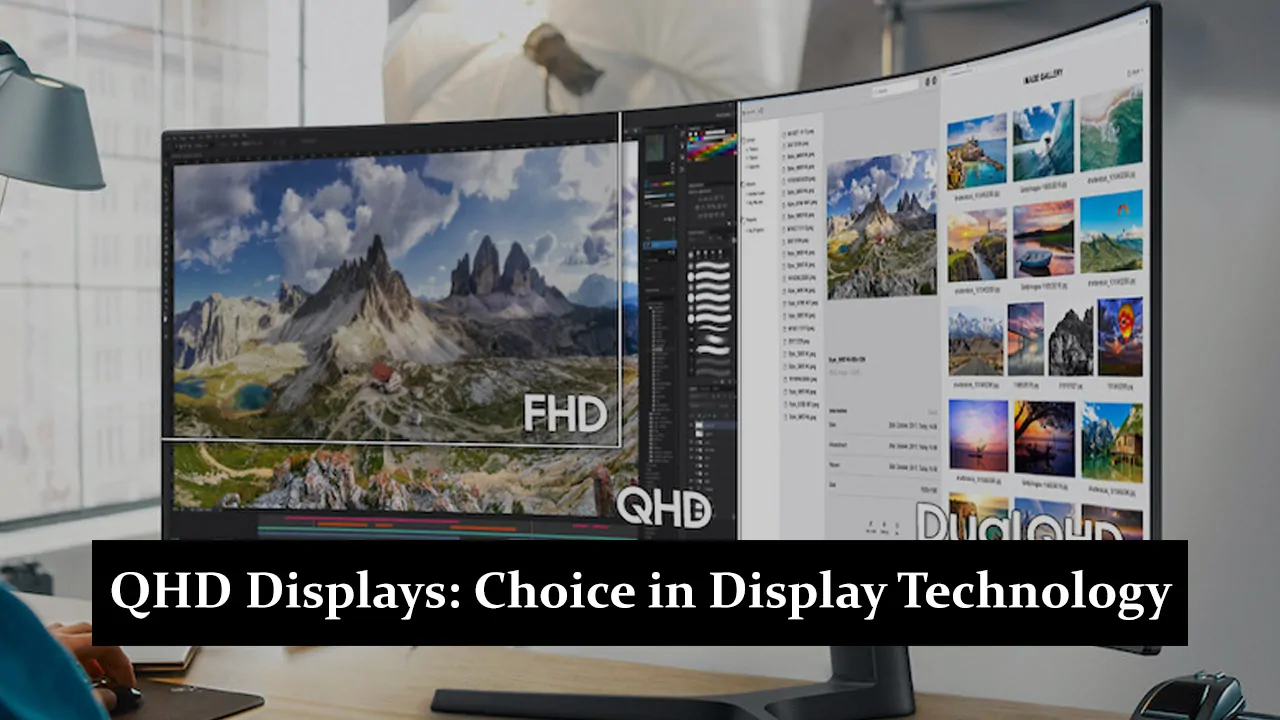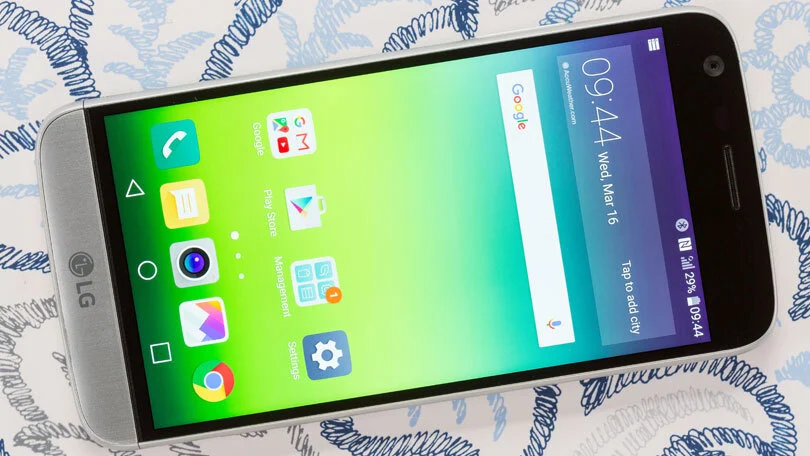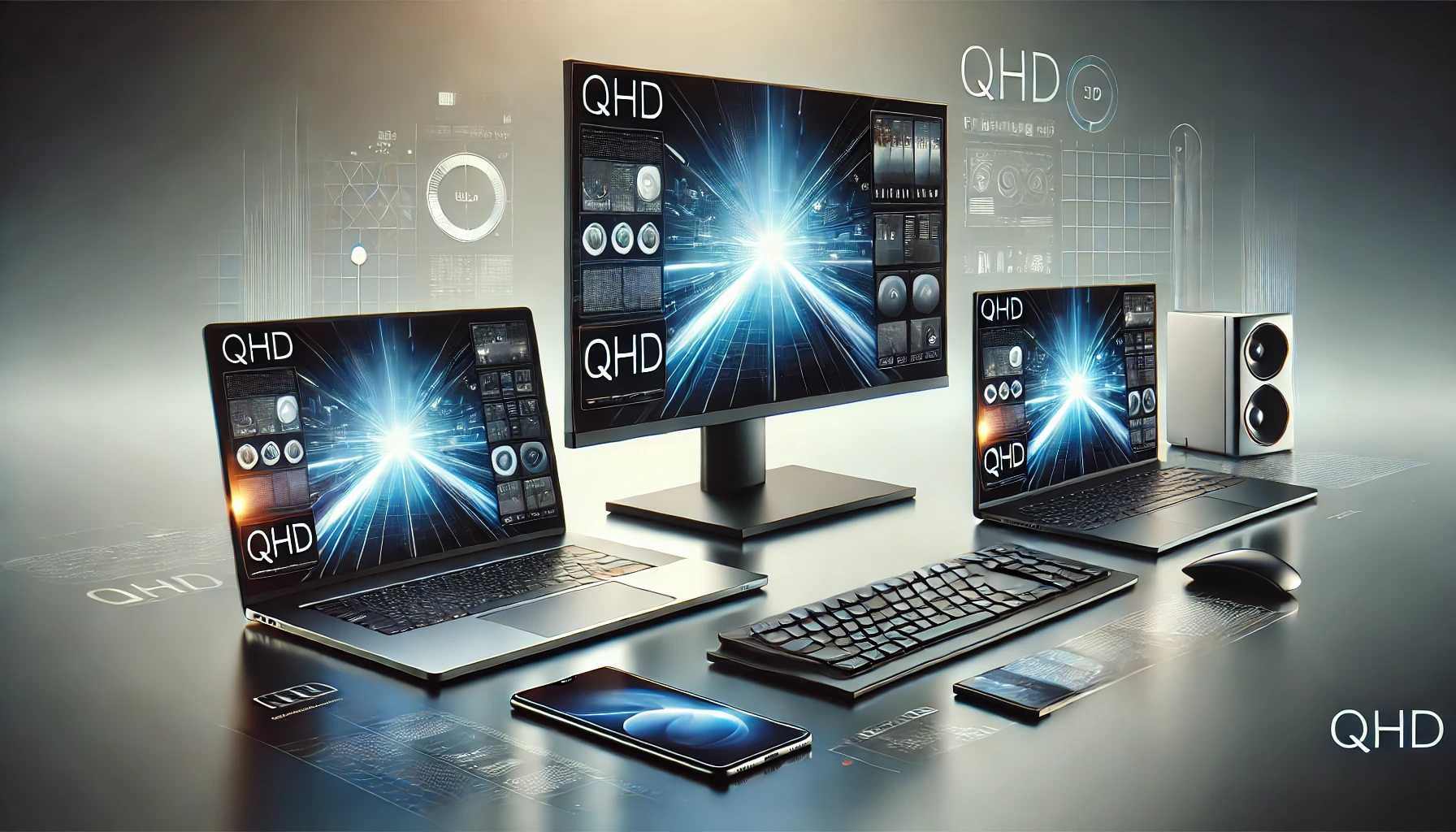QHD, or Quad High Definition, refers to a display resolution of 2560 x 1440 pixels, offering four times the clarity of standard HD (720p). This resolution sits between Full HD (1080p) and 4K, providing a clear picture for gaming and video editing activities. Compared to other resolutions like HD and FHD, QHD delivers more detail and better image quality. It first appeared in devices like monitors and smartphones as a middle ground between FHD and 4K, gaining popularity due to its balance of performance and price.
Key Features of QHD Displays
High Resolution
QHD displays have a resolution of 2560 x 1440 pixels, four times higher than standard HD. This means they can display more detail and offer sharper images. Whether you’re watching videos or browsing the web, QHD gives a noticeable improvement in visual quality compared to HD and Full HD.
Improved Pixel Density
With more pixels packed into the same screen size, QHD displays offer higher pixel density, resulting in better image clarity. This makes text and images appear sharper, especially useful for tasks like reading or editing photos and videos, where fine detail matters.
Wider Screen Real Estate
Due to their higher resolution, QHD displays provide more screen space. This is especially helpful for multitasking, as you can fit more windows or applications on the screen without losing clarity. It’s ideal for professionals who work with multiple programs at once or gamers who want a more immersive experience.
Better Visual Experience
With enhanced sharpness and clarity, QHD displays improve the overall viewing experience. The visuals are more vibrant and lifelike, whether for gaming, watching movies, or viewing high-quality photos. Colours appear more vivid, and details are more distinct, making the content feel more engaging.
Balanced Performance and Power
QHD provides a good balance between quality and efficiency. While it significantly improves over Full HD, it doesn’t require as much processing power or battery life as 4K displays. This makes QHD an excellent choice for those looking for high-quality visuals without the high power consumption or cost associated with 4K.
Devices That Feature QHD Displays
Here are some popular devices that come with QHD displays:
Mobile phones:
- Samsung Galaxy S20 / S21 / S22: These flagship models from Samsung feature QHD displays, offering stunning visuals for gaming, streaming, and everyday use.
- OnePlus 8 Pro / OnePlus 9 Pro: These OnePlus models are known for their smooth performance and display quality. They have QHD displays for a crisp and clear experience.
- Google Pixel 4 XL: The Pixel 4 XL has a QHD display, which is great for watching videos, browsing, and using Google’s advanced photography features.
Monitors:
- Dell S2719DGF: This 27-inch monitor is a popular choice for gamers. It features a QHD display with a high refresh rate for smooth gaming visuals.
- ASUS ROG Swift PG279Q: This gaming monitor has a QHD resolution and offers immersive gaming experiences with vibrant colours and sharp details.
- LG 27GL83A-B: This 27-inch monitor is highly regarded for its QHD resolution and is perfect for gaming and professional use, like photo or video editing.
Laptops:
- Microsoft Surface Book 3: Known for its sharp and clear display, the Surface Book 3 offers a QHD screen for design, media, and productivity tasks.
- Dell XPS 15: The XPS 15 features a stunning QHD display, making it a great choice for professionals working with high-definition visuals or media creation.
- Razer Blade 15: This gaming laptop has a QHD display option, which provides a smooth and vibrant display for gaming enthusiasts.
Advantages of QHD Displays
- Enhanced Visual Experience: QHD provides sharper, clearer images, making it perfect for gaming, watching movies, and content creation with more vivid and detailed visuals.
- Improved Clarity for Professional Use: The high-resolution benefits professionals in design, photo editing, and video production, allowing for precise work with clearer details.
- Ideal for Multitasking: The larger screen real estate lets users view multiple windows or applications side by side without sacrificing image clarity, improving productivity.
- Better for Gaming: QHD strikes a balance between performance and quality, offering better visuals for gaming without the hardware demands of 4K, enhancing the overall experience.
- Future-Proof Technology: QHD displays are a good investment, offering high-quality visuals that will remain relevant as more content and applications adopt higher resolutions.
Comparison with Other Displays
| Feature | QHD | OLED | AMOLED | Super AMOLED | Retina Display |
| Resolution | 2560 x 1440 | Varies (up to 4K) | Varies (up to 4K) | Varies (up to 4K) | Varies (up to 4K) |
| Pixel Density | High | Very High | Very High | Very High | High |
| Colour Accuracy | Good | Excellent | Excellent | Superior | Good |
| Contrast Ratio | Moderate | Infinite | Infinite | Infinite | Good |
| Power Efficiency | Moderate | High | Higher than OLED | Best | Moderate |
| Viewing Angles | Wide | Wide | Wide | Wide | Wide |
Conclusion
QHD is a great option in display technology, offering a perfect balance between sharpness, performance, and power efficiency. It provides clear and detailed visuals, making it ideal for gaming, video editing, and general media consumption. Compared to other resolutions like Full HD and 4K, QHD delivers a high-quality viewing experience without overloading hardware or battery life. QHD is a reliable choice for users who prioritise clarity and performance. When deciding on the right display technology, consider your specific needs and the visual clarity required for your daily tasks.






